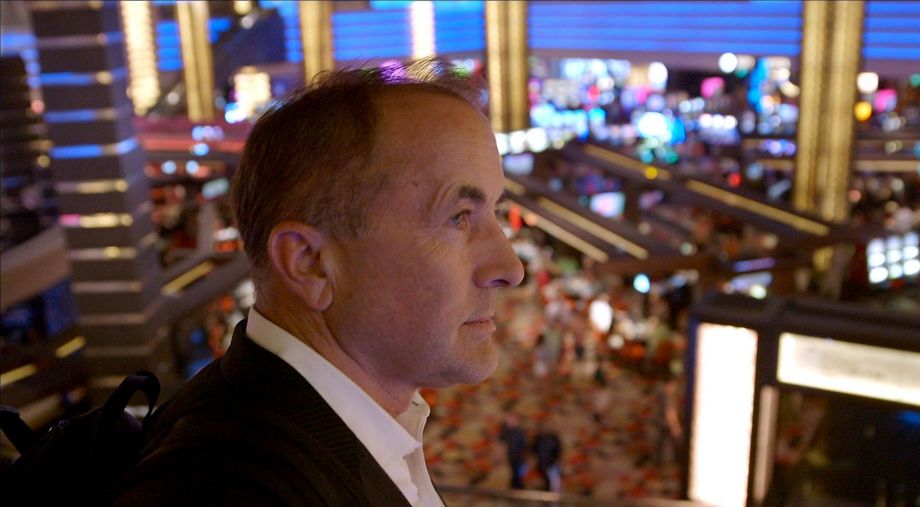An issue-driven documentary like The Hunting Ground aims to spur viewers into action. A common related goal is to make viewers angry.
On this latter point, director Kirby Dick succeeds.
The film focuses on sexual assault on American college campuses. Even if you come into the theater already convinced that campus rape is a major problem, the featured victims’ stories are guaranteed to make your blood boil.
As more than one interviewee states, the attack itself was bad, but what happened to them afterward was far worse. The victims—mostly women but also a few men—went to school authorities for help, only to be discouraged from reporting the crimes.
The problem, experts on the issue charge, is that officials are more concerned about protecting their schools’ reputations than they are about protecting their students. And sexual assault is clearly not good for a school’s reputation.
As the documentary proceeds, two students at the University of North Carolina at Chapel Hill emerge as its prime protagonists. Annie Clark and Andrea Pino respond to their individual assaults by banding together, first as friends and later as activists.
Stymied in their efforts to foment action on the problem, they eventually stumble onto the idea of filing Title IX complaints (based on a federal law that prohibits sex discrimination in education) against schools that ignore sexual assault. It’s an inspired strategy, as university officials seem to fear angering the government, with its buckets of money, even more than they fear bad publicity.
Of course, as you know if you keep up with the news, it’s possible to err on both sides of this issue.
Last November, Rolling Stone published a story about an alleged gang rape at a University of Virginia frat house. In recent weeks, the magazine was forced to retract the story, admitting it had made little attempt to verify that the attack actually happened as described.
There also have been stories of schools being so eager to prove they’re tough on rape that they’ve expelled alleged attackers without giving them an opportunity to defend themselves.
Due either to timing or to a reluctance to muddy the waters, Dick does not address such incidents. It’s a sign of his documentary’s persuasiveness that we applaud the reforms Clark, Pino and other activists are seeking to bring about, even though we realize they can lead to a new set of university abuses.
Wouldn’t it be better if school officials simply turned sexual-assault reports over to the police and courts, which at least have more experience investigating them? One would think so, but an incident reported late in the film demonstrates that even they aren’t immune to university PR concerns. When a woman tells the police she was raped by a star football player, her complaint is put on the back burner by a cop who seems more loyal to his alma mater than he is to fighting crime.
Lucrative sports programs, the film argues persuasively, are yet another in the long list of barriers that often stand between campus rape victims and justice.
Rating: 4½ stars (out of 5)
Beyond an unreasonable doubt
We all know the tobacco companies spent millions fighting an idea that’s now considered scientific fact: Smoking causes cancer. But did you know that Big Tobacco also fought the idea that cigarettes are a major cause of household fires?
The real problem, they argued, was not that cigarettes weren’t self-extinguishing but that clothing and furniture weren’t flame-retardant. Their solution was to call for treating such products with massive amounts of firefighting chemicals—chemicals that were found to carry their own health risks.
That’s just one of the interesting details revealed in Merchants of Doubt. Directed by Robert Kenner, the documentary is about the army of self-described experts who exist to question what Al Gore might describe as “inconvenient truths.” Though they often claim to be independent voices, a little digging is likely to reveal that they’re paid by the industries most likely to be inconvenienced by those truths.
These days, it seems, their biggest target is environmentalism. Just as their predecessors once claimed the health risks of smoking had yet to be proved, they now argue that science has yet to prove global warming is real.
Kenner’s film is full of revealing interviews with current and reformed “merchants” of this kind of doubt. It’s fascinating until the last quarter hour or so, when Kenner appears to tire of interviewing such people and just starts preaching on the environmental dangers many of them are trying to hide.
For anyone who’s seen An Inconvenient Truth or any number of similarly themed documentaries, Merchants of Doubt is most enlightening when it sticks to its stated topic.
Rating: 3½ stars (out of 5)
The Hunting Ground and Merchants of Doubt (both rated PG-13) open Friday (April 10) at the Gateway Film Center, 1550 N. High St., Columbus. Both films are also featured in the Gateway’s annual Documentary Week (April 17-23). For show times, visit gatewayfilmcenter.com.

